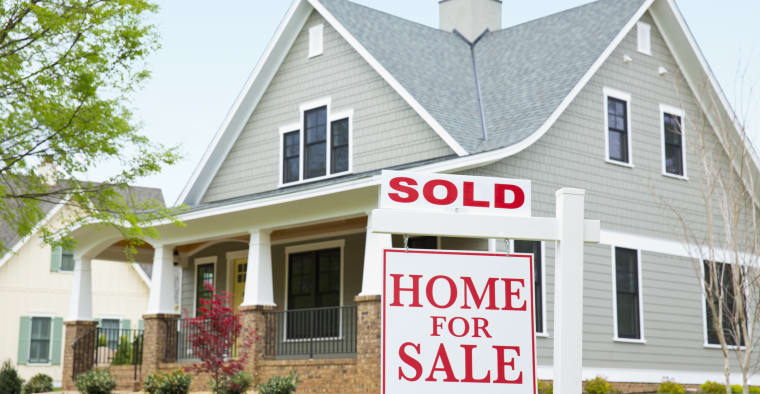The Fed (Finally) Dropped Its Rates. Here’s What That Means for Homeowners

If you’ve been staring longingly at the housing market, the Federal Reserve’s recent rate cut may have finally brought a smile to your face. The drop from 5.25%-5.5% to 4.75%-5% is the first time the organization has made a rate cut since 2020, moving away from the highest the rate has been in over 20 years.
But while the Federal interest rate doesn’t directly control mortgage interest rates, it can affect them profoundly. Case in point, the average U.S. interest rate on a 30-year fixed-rate mortgage was 6.32% as of Oct. 10 — down from a staggering high of 7.79% at the end of October 2023.
So with rates (finally) on the downside, what will the effects be for those on the housing market — and existing homeowners?
What does the interest rate drop mean for home-buyers — and owners?
Mortgage interest rates are a big deal when it comes to buying a house. Even figures that seem quite low, like 5%, can add up to a lot when the loan in question is a six-figure sum.
Higher interest rates mean higher monthly payments and, for many, slower accrual of equity. For some would-be homebuyers, high rates can scuttle the entire deal.
Case in point: In 2023, when interest rates reached a historical high, home sales reached a correlated low. Simply put, fewer people could afford to buy into the market, whether for their first time or to fund a move.
This means that rate drops like this one — especially if more are on the way — could catalyze more home sales, stimulating the market to pick up again. For first-time buyers who’ve been waiting to get in on the game, the benefits are obvious. But there are benefits for existing homeowners, too.
For one thing, if you’ve been hoping to move, lower interest rates could mean the decision makes more financial sense. (It’s hard to give up a mortgage with a 3% interest rate in favor of one with 7% APR.)
And if you did lock in a higher-than-average rate, lowering interest rates could offer you the chance to refinance and score a more affordable monthly payment — and possibly save money on interest over the long term.
Do mortgage interest rates affect homeowners insurance?
Good news: Your mortgage interest rate isn’t one of the factors that affects the cost of your homeowners insurance policy. Instead, your costs will vary based on where your home is, its characteristics (its age, for example) and your credit history.
However, this recent drop could still have an effect on insurance providers. If more people buy homes, insurers could sell more policies — which could lead to a decrease in premiums. (Of course, there are other factors that counteract this possibility, like the increasing costs of weather-damage-related claims. Unfortunately, homeowners insurance costs more than ever these days — and for less coverage.)
Despite premiums so high that even personal finance gurus like Suze Orman are turning to self-insurance, many homeowners insurance providers are actually operating at a loss. However, experts expect to see profitability by late next year or early 2026. There’s a world in which that dynamic could translate into slightly lower premiums — but for now, we suggest taking good care of your home and keeping up with your seasonal maintenance schedule to avoid needing to file any claims.
Editorial Note: The content of this article is based on the author’s opinions and recommendations alone. It has not been previewed, commissioned or otherwise endorsed by any of our network partners.